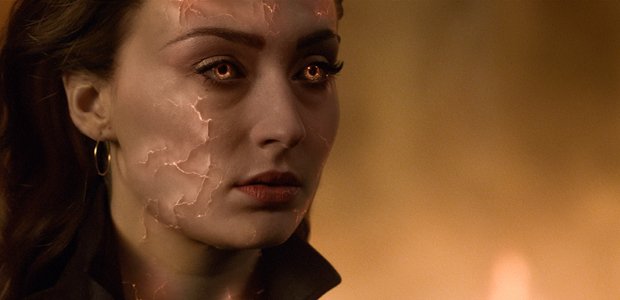When Bryan Singer’s X-Men was released in 2000, it was a total game changer. While audiences had previously seen big screen Marvel adaptations of Howard The Duck and Blade, X-Men was the first of the brand’s properties to be brought to theaters with a legitimate blockbuster budget, and by the end of its worldwide release it was not only a massive hit that raked in nearly $300 million, but it also opened the industry’s eyes to the immense potential of cinematic superheroes not named Batman or Superman. Eight years later Jon Favreau’s Iron Man created a second wave to the movement, but that never would have happened without the first live-action feature about Marvel’s diverse clan of super-powered mutants.
Speaking to their popularity, the X-Men have remained a constant presence in the nineteen years since, with a total of 11 movies tethered to the continuity, but that is now all coming to an end. With the acquisition of 21st Century Fox by Walt Disney Studios, the films are going to change as the characters are blended into the ever-expanding Marvel Cinematic Universe, and the move will effectively conclude an important era of superhero filmmaking.
As a franchise, it leaves behind a legacy of some extreme highs and some terrible lows, but that’s also kind of been a part of its charm. The inconsistency was acceptable because there was hope that the inevitable next release would be able to get the mutants back on their feet. Now that it’s facing termination, though, that safety net no longer exists, and Simon Kinberg’s Dark Phoenix is hitting theaters as a horse of a different color. And what’s devastatingly unfortunate is that with it the X-Men franchise is coming to an end with the worst chapter of its long-running main series.
This may not come as an extreme shock to those who have been closely watching the blockbuster’s development, as it’s a project that has been subjected to repeated delays and a lot of post-production retooling, but even still the most pessimistic fans will be shocked by just how shoddy Dark Phoenix manages to be. It’s a movie rife with bland performances, dull storytelling, and bizarrely misguided choices, and while there is the occasional cool action beat and mutant team-up to enjoy, it’s jaw-dropping in its incompetence overall.
Dark Phoenix is the franchise’s second attempt at adapting the legendary titular Marvel Comics arc after X-Men: The Last Stand (and a second go for Simon Kinberg, who previously wrote the Brett Ratner-directed film), and while there are certainly elements that remain much more faithful to the source material, the new movie also manages to be considerably worse. Picking up with the familiar characters in 1992 – though you wouldn’t know it given the complete lack of period styling – the story begins with the eponymous mutant team hailed as well-renowned heroes, and Professor Charles Xavier (James McAvoy) pushing them to do missions that are more and more dangerous (something that is simply told in detail-lacking fashion instead of actually shown).
The latest of these expeditions is a debut voyage into outer space following the troubled launch of the Space Shuttle Endeavour, which starts spinning out of control when it encounters what is initially described by NASA as a solar flare. Led by Mystique (Jennifer Lawrence), Beast (Nicholas Hoult), Quicksilver (Evan Peters), Storm (Alexandra Shipp), Cyclops (Tye Sheridan), and Jean Grey (Sophie Turner) slip the surly bonds of Earth in an attempt to rescue the troubled astronauts, and while all lives are successfully saved, things get dramatic when Jean is left behind in the damaged shuttle and absorbs the entirety of the cosmic anomaly.
It turns out that Jean isn’t dead, but instead actually more than fine – with her power levels revealed as “off the charts” during a medical examination back on Earth. The problem is that she doesn’t have much of a grip on her new strength, which results in her being a bit… explode-y. As Professor X tries to help her, a secret is exposed that he long tried to keep buried, which results in her going on a lightly-homicidal but mostly angst-filled rampage that divides the team into those who want to save Jean, and those who want to see her killed.
Your Daily Blend of Entertainment News
If you’re wondering at this point why I have not yet mentioned the role played by Jessica Chastain – which has been kept as one of the movie’s most tightly guarded secrets – it’s because it’s a character so immensely boring that it doesn’t really deserve mention in the basic plot description of the film. Not only is the part not even remotely interesting for comic book fans, making it one of the more disappointing aspects of Dark Phoenix for those who have been hyped about the reveal, but there is really nothing to it beyond her being the proverbial devil on Jean’s shoulder (and she doesn’t even start to become significant in that way until more than halfway through the story).
Ultimately her and her group of extraterrestrial cronies are little more than basic antagonists who the heroes can take on in large numbers during the film’s third act – and that’s not a job you give to one of the best actresses in the world. Given nothing to do, Chastain performs the role as a stoic, and it feels entirely hollow.
It’s unfair to solely beat up on this part of Dark Phoenix, as the reality is that nobody in the main cast is giving 100 percent returning to their familiar roles. James McAvoy is probably the standout, as he gets to bring something interesting to the table playing a version of Xavier who has succumb in part to his ego and a subtle drinking problem, but so little is done with the arc that it just becomes a part of the monotony as the film trucks along through its third act. Jennifer Lawrence and Michael Fassbender, meanwhile, are practically checking their watches (though in their defense they’ve been unnecessarily surgically attached to this franchise for years simply because of the star power that they bring to the table). And if you are hoping that Evan Peters’ Quicksilver at least injects the movie with the charisma that made him the highlight of both X-Men: Days Of Future Past and X-Men: Apocalypse, be prepared to see him totally sidelined shortly into the second act.
Dark Phoenix does at the very least keep Jean at its center, but even Sophie Turner is forced to deliver an uninspired performance because there simply is nothing to the Kinberg-written script – which still weirdly borrows heavily from the work he did on X-Men: The Last Stand, specifically by maintaining her conflict with Xavier. And while this should have some dramatic weight given the subject of the aforementioned lie, it feels less serious than the circumstances in the Brett Ratner film, and therefore lesser. The murder she carries out is actually more accidental than anything, failing to really convince the audience of any real increasingly dangerous intentions, and from there the movie does the rote travel from A to B to C that you entirely expect, and it never bothers to raise the stakes or provide opportunity for emotional investment (she arguably doesn’t actually really do anything “evil” past the death in the second act).
For a movie as bad as Dark Phoenix, it seems to have a bizarre self-awareness – whether it’s Magneto hitting Xavier with the line “You're always sorry, Charles, and there's always a speech, but nobody cares” (which essentially sums up fan reaction to the setup for most of pre-showdown moments we’ve seen in this franchise), to the literal train wreck featured in the third act. And even with the film’s reshoots happening amidst talk about the series coming to an end, there is no definitive conclusion offered to audiences. As bad as they sometimes could be, the X-Men movies were tremendously influential blockbusters in 21st century filmmaking, and the series deserved much more than this sad whimper at the finish line.

Eric Eisenberg is the Assistant Managing Editor at CinemaBlend. After graduating Boston University and earning a bachelor’s degree in journalism, he took a part-time job as a staff writer for CinemaBlend, and after six months was offered the opportunity to move to Los Angeles and take on a newly created West Coast Editor position. Over a decade later, he's continuing to advance his interests and expertise. In addition to conducting filmmaker interviews and contributing to the news and feature content of the site, Eric also oversees the Movie Reviews section, writes the the weekend box office report (published Sundays), and is the site's resident Stephen King expert. He has two King-related columns.

